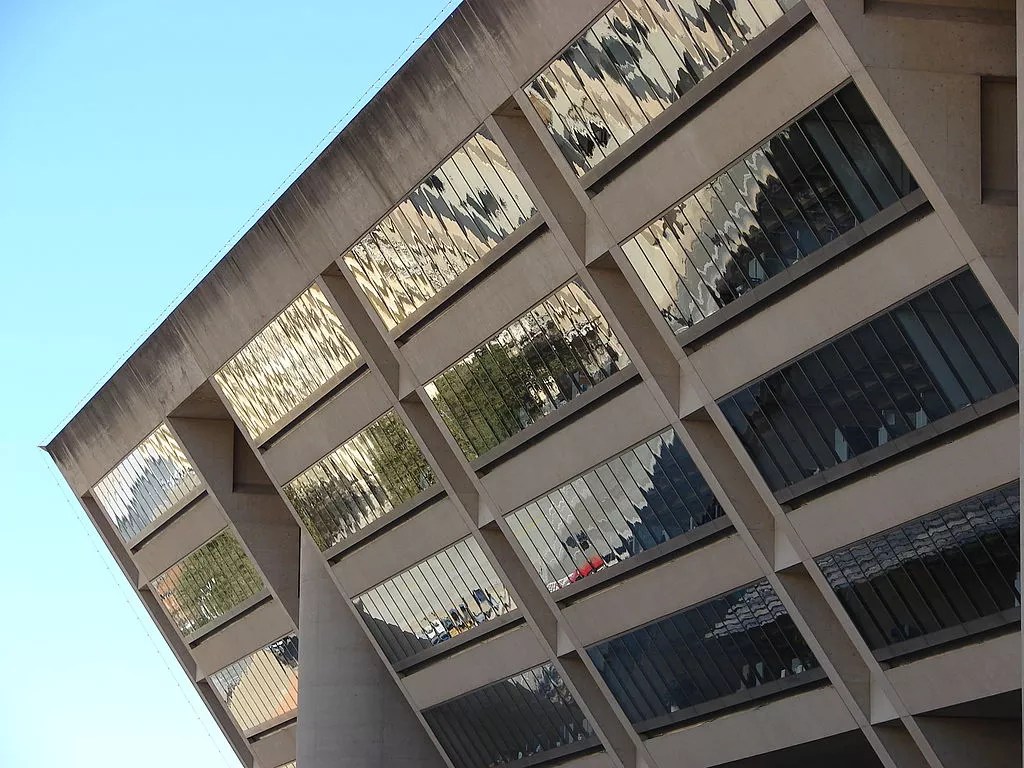
Wiki Commons

Audio By Carbonatix
Wednesday, the Dallas City Council got its latest look at the novel coronavirus-sized hole that’s still being torn in the city’s budget. The damage, so far at least, is significant but seemingly surmountable. Amid all the numbers, however, was a stark warning from Dallas’ chief financial officer.
For both the current fiscal year and the next one, Elizabeth Reich, Dallas’ CFO, offered the council projections of what her office thinks the city’s budgets will look like.
Fiscal year 2020 looks a bit worse than Reich estimated it would in May, when she told the Council she anticipated a $33.8 million shortfall, based largely on a decline in sales tax receipts. After the release of April’s sales tax numbers, that estimate has been revised to $49.6 million, thanks to larger than anticipated decreases in franchise taxes and charges for services.
The city has already covered more than $10 million of the projected shortfall with cutbacks like employee furloughs and a hiring freeze.
The fiscal year that begins in October will be worse, according to city staff.
Last year, when Dallas released its planned budget for the next fiscal year, it estimated it would have about $1.5 billion to spread around. Two forecasts, an optimistic one and a pessimistic one, estimated Dallas’ actual budget next year will come up between $60.6 and $100.6 million short.
Even the pessimistic scenario, Reich said, isn’t a worst-case scenario. That’s where the warning came in.
“A worst case would be if we were to shelter-in-place again, either officially or unofficially.” — Elizabeth Reich
“A worst case would be if we were to shelter-in-place again, either officially or unofficially,” Reich said. “We are not forecasting that scenario. We actually don’t feel it’s very likely politically.”
Neither Dallas County Judge Clay Jenkins nor Dallas Mayor Eric Johnson has mentioned the idea of asking Dallas residents to begin sheltering in place again, but county and city officials in urban areas around the state have pushed their constituents to stay home as COVID-19 infections and hospitalizations have spiked across the state.
Wednesday, Dallas County reported 413 new novel coronavirus infections, its highest total of the three-month pandemic.
The hard work of figuring out where to make up the city’s shortfalls will come this summer and fall as Dallas goes through its budgeting process. On Wednesday, as it’s been for the past three weeks, it was clear that the police and fire departments’ budgets, which make up 60% of the city’s discretionary spending, will be the biggest sticking points.
“That’s really an area that sounds up to some reimagining and some rethinking,” Council member Lee Kleinman said. “When we get to the line items – trust me, I’ll have my $70-$100 million worth of reductions.”
Kleinman, who brings a laundry list of items he says can be be culled to every budget debate, suggested the city could fight institutional racism, and save a some cash, by farming out police recruiting and training to professionals rather than having DPD perform both functions internally.
Council member Casey Thomas, who’s helped lead the fight to reconsider how the city spends cash currently allocated to public safety, said it was time for Dallas to use its budget to address Dallas’ longstanding inequalities.
“We have to look at non-traditional means of policing,” Thomas said. “We have intentionally discriminated against black people with our policies and how we have allocated our dollars in the budget historically and that’s why we have the disparities that we have.